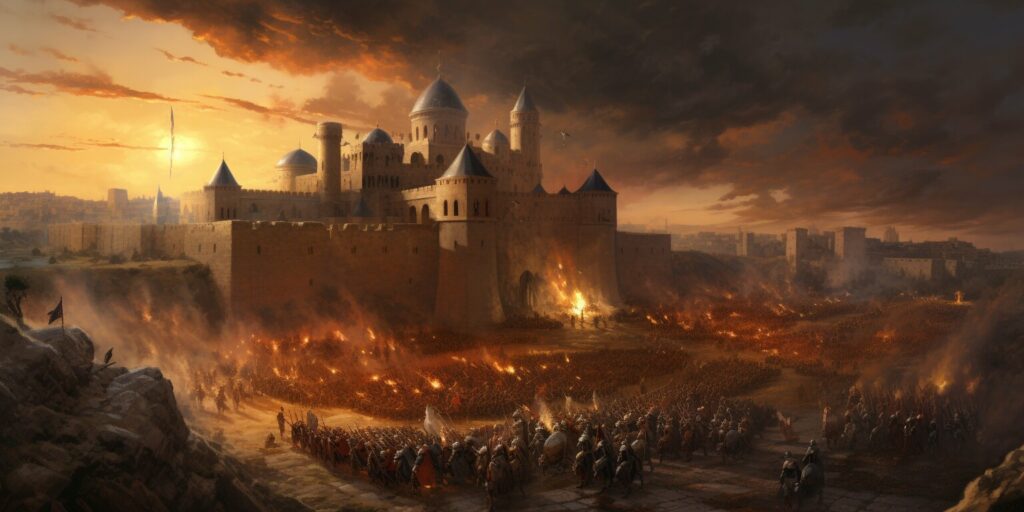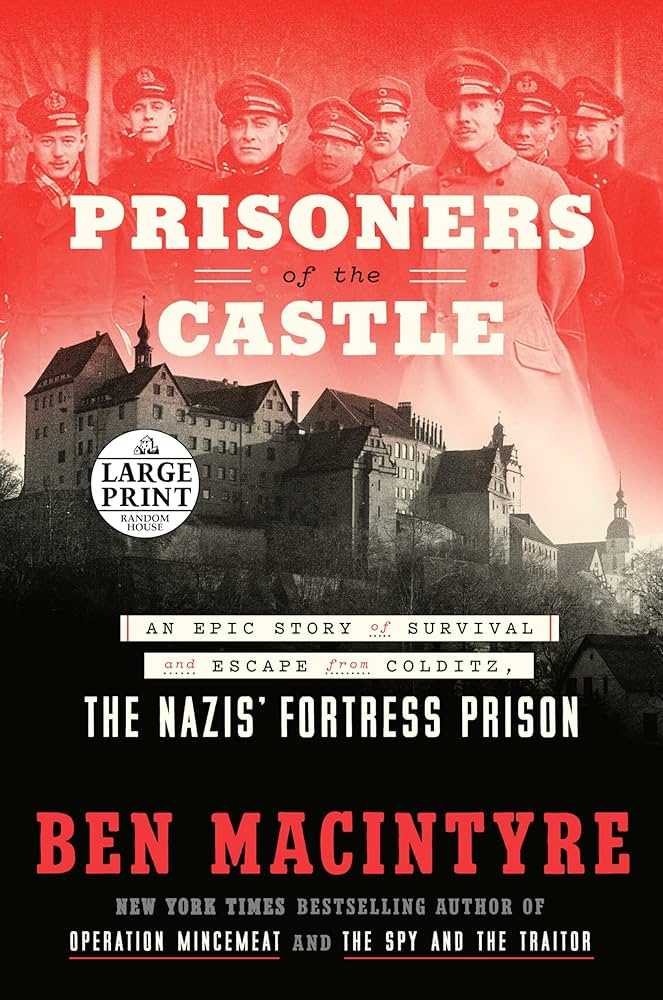In the annals of human history, the medieval period stands out as a time of profound transformation and significant events that shaped the course of civilization. From the fall of the Roman Empire to the rise of feudalism and the spread of Christianity, the medieval era was marked by key events that continue to impact the world today. Let’s delve into some of the most important events in medieval history.

Credit: www.amazon.com
The Fall of the Western Roman Empire (476 AD)
The fall of the Western Roman Empire marked the end of an era and the beginning of the medieval period. As waves of barbarian invasions swept across the Roman territories, the empire’s power and influence waned, ultimately leading to its collapse in 476 AD. This event had far-reaching consequences, including the fragmentation of political authority and the rise of new social, cultural, and economic structures.
The Battle of Hastings (1066)
The Battle of Hastings in 1066 was a pivotal event in medieval Europe. It culminated in the Norman conquest of England, forever altering the course of English history. The Norman victory under William the Conqueror led to the establishment of Norman rule in England, introducing significant cultural, linguistic, and political changes that left a lasting impact on the English nation.
The Magna Carta (1215)
The signing of the Magna Carta in 1215 marked a watershed moment in the struggle for political rights and liberties. This historic document, forced upon King John of England by his barons, laid the foundation for the principle of limited government and the protection of individual freedoms. Its clauses influenced subsequent legal developments and constitutional frameworks, serving as a cornerstone of modern democratic governance.

Credit: knightstemplar.co
The Black Death (1347-1351)
The Black Death, a devastating pandemic caused by the bubonic plague, ravaged Europe in the mid-14th century, resulting in widespread death and social upheaval. With mortality rates estimated to have been as high as 50%, this catastrophic event reshaped medieval society, leading to labor shortages, economic dislocation, and cultural transformations. Its impact reverberated for generations, fundamentally altering the demographic and economic landscape of Europe.
The Hundred Years’ War (1337-1453)
The protracted conflict known as the Hundred Years’ War was a defining feature of medieval European history. Fought between the Kingdom of England and the Kingdom of France, the war spanned over a century and had profound implications for both countries. It ushered in significant changes in military tactics, national identity, and political dynamics, ultimately shaping the emerging nation-states of England and France.
The Reconquista of Spain (711-1492)
The centuries-long campaign known as the Reconquista saw the Christian kingdoms of the Iberian Peninsula gradually reclaim territory from the Muslim rulers. Culminating in the fall of Granada in 1492, the Reconquista marked the end of Islamic rule in Spain and set the stage for the unification of the Spanish kingdoms under the Catholic Monarchs, Ferdinand and Isabella. This pivotal event had profound religious, cultural, and geopolitical ramifications for the region.
The Great Schism (1378-1417)
The Great Schism, a split within the Roman Catholic Church that resulted in rival papacies and competing claims to spiritual authority, deeply divided Western Christendom. The schism weakened the ecclesiastical hierarchy and engendered widespread confusion and political strife. It took the Council of Constance in 1417 to finally end the schism and restore unity to the papacy, but the repercussions of this tumultuous period continued to resonate within the church for years to come.
The Printing Press and the Renaissance
The invention of the printing press by Johannes Gutenberg in the mid-15th century revolutionized the spread of knowledge and ideas, heralding a new era of intellectual and cultural flourishing known as the Renaissance. The printed word became more accessible, enabling the dissemination of scientific, philosophical, and artistic advancements that transformed Europe’s intellectual landscape and fueled the transition from the medieval to the modern world.
The End of the Medieval Period
The medieval era drew to a close with watershed events such as the voyages of exploration, the fall of Constantinople, and the emergence of early modern states. These developments initiated the transition from medieval to early modern Europe, signaling the end of an epoch and the dawn of a new age characterized by global exploration, intellectual innovation, and profound social change.
As we reflect on the important events in medieval history, it’s clear that the legacy of this era continues to shape our world today. From the rise and fall of empires to transformative social and cultural movements, the medieval period left an indelible mark on human civilization, underscoring the enduring significance of these pivotal events in shaping our collective past and future.
Frequently Asked Questions Of Important Events In Medieval History: Uncovering The Epic Tales
What Major Events Occurred During The Medieval Period?
– The Black Death pandemic swept across Europe, causing widespread devastation. – The Battle of Hastings in 1066 led to the Norman conquest of England. – The signing of the Magna Carta in 1215 established the principles of individual rights and limited government.
– The Crusades, a series of religious wars, were waged by Christians to reclaim the Holy Land from Muslims. – The Hundred Years’ War between England and France lasted from 1337 to 1453. – The Renaissance, a period of cultural and intellectual rebirth, began in Italy in the 14th century.
How Did The Black Death Impact Medieval Society?
The Black Death, also known as the Bubonic Plague, had a significant impact on medieval society. It caused a high mortality rate, leading to a drastic decline in population. This, in turn, resulted in labor shortages and economic disruption. The plague also led to widespread fear and panic, resulting in the persecution of marginalized groups such as Jews and beggars.
How Did The Norman Conquest Of England Shape Medieval History?
The Norman conquest of England, led by William the Conqueror, had a profound impact on medieval history. It resulted in the establishment of a new ruling class and the adoption of Norman culture and language. This event also laid the foundation for the centralized feudal system, which greatly influenced political and social structures in medieval Europe.
What Were The Main Causes Of The Crusades?
The main causes of the Crusades can be traced back to religious and political motivations. Christian knights and nobles sought to reclaim the Holy Land, particularly Jerusalem, which had been under Muslim control. Additionally, the promise of spiritual rewards and the opportunity to gain riches and land attracted many participants to the Crusades.
Guest Author Sakhawat-Shuvo wrote and edited this Article based on his best knowledge and understanding. These opinions and remarks are not endorsed or guaranteed by epichistoria.com or EpicHistoria. The Epic Historia does not guarantee this article’s content. Readers should verify and use their judgment before trusting the content. Also, the Images used in this Article are the copyright of their Respective Owners. Please use our Comment Box or Contact Us form to report this content. This information is not accountable for losses, injuries, or damages.


